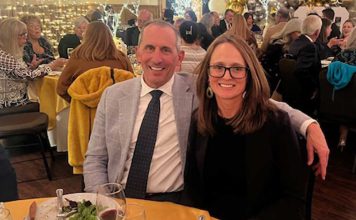This spring, Robertina Franco will face a judge in a South
County courtroom and learn her sentence in the Brayan Trejo case.
Franco struck and killed the child at the intersection of 10th and
Church streets last summer; she changed an initial
”
not guilty
”
plea to
”
guilty
”
after consultation with her attorney.
This spring, Robertina Franco will face a judge in a South County courtroom and learn her sentence in the Brayan Trejo case. Franco struck and killed the child at the intersection of 10th and Church streets last summer; she changed an initial “not guilty” plea to “guilty” after consultation with her attorney.
Franco’s tale is a cautionary one for all of us who get behind the wheel of a two-ton vehicle daily and drive around the city. That vehicle, combined with carelessness for just a moment, can make one a criminal. Franco has been defended by her friends as a hard worker and a decent person; I have no reason to believe otherwise. Nonetheless, she finds herself in a terrible situation.
Not as terrible, however, as the Trejos, who are hurting because of life’s most tragic event, the death of a child. Their statements will be heard at Franco’s sentencing hearing and will be taken into consideration by the judge. I predict neither side will be happy with the sentence. This is usually a good indicator of a legal settlement that approximates justice.
Now to the subject of today’s column. Why is it that every tragedy in our country has to play out in a courtroom? I simply choke on the idea that every tragedy is like picking the right six numbers in the state lottery.
I talked to my sister about this case. She’s a retired senior claims examiner who worked for a large insurance company in Ohio. When I described the facts of the matter, she immediately said “policy limits.”
“We’d send out a claims examiner with a check, and be done with it. A child is dead, the policyholder is clearly at fault, and it’s just not a chance we’d take.”
Let’s assume that Franco was legally licensed, was driving a safe, legally registered vehicle, and was insured. I think these are logical assumptions, because we’d have heard otherwise from the police and court documents were it not so.
Let’s further assume that, like most of us, Franco had what’s called “100/300” liability insurance. This policy would pay out a maximum of $100,000 per person injured or killed, with a $300,000 total cap for any accident. Her insurance, if it has not all ready done so, will probably pay that amount.
To no one’s surprise, however, last Monday night, our City Council denied a pro forma claim made by the Trejo family against the City of Gilroy. Such a claim is legally required before a lawsuit can be filed. The City of Gilroy, you may ask? What did the city do? Franco hit the child, in broad daylight, in a crosswalk. Why should the city be a defendant?
Well, because the city has “deep pockets.” Assuming, as I have above, that Franco’s policy has maxed out, the city’s hasn’t, and the city’s pockets are a WHOLE LOT deeper than Franco’s.
The claim that council denied (this is routine; council denies every claim and puts it in the hands of the city’s insurer) alleges “negligent infliction of emotional harm.” So, essentially, by not installing a left-hand turn signal at the intersection, the claim alleges the city is liable for Trejo’s death.
Mr. Caputo, the lawyer for the Trejo family, was said “It’s not right and they could have prevented this. Obviously the Trejo family is still in a state of mourning. I suppose there are some ingredients of anger, but I think now they’ve come to the conclusion that they don’t want this to happen to another child or any individual.”
Fine words by Mr. Caputo. And, I have a solution. Mr. Caputo probably hasn’t even filed the Superior Court summons and complaint yet. So, I propose that rather than doing so, the city’s attorney negotiate a settlement in which the city installs left-hand turn signals at the intersection as soon as possible, say, grabbing a figure out of the air, a month. That should settle it, right?
You dreamer. The problem is that attorneys in personal injury lawsuits, which this is, are paid a percentage of the settlement. No cash settlement, no fee for the attorney. I’m not a big opponent of that system; for one thing, it enables ordinary people to hire crackerjack lawyers without paying up front, and that is occasionally a good thing. But it’s also exactly the reason why such a settlement won’t happen.
However, in the extant case, the system is not a good thing. The city has provided signals and crosswalks at that intersection. An insurance company has or will reimburse the Trejo family for financial loss.
So, if a driver, through negligence, chooses to ignore those signals and subsequently kills someone, the criminal justice system and insurance companies are perfectly able to handle it without the grifting around for additional funds that is taking place in this matter.












